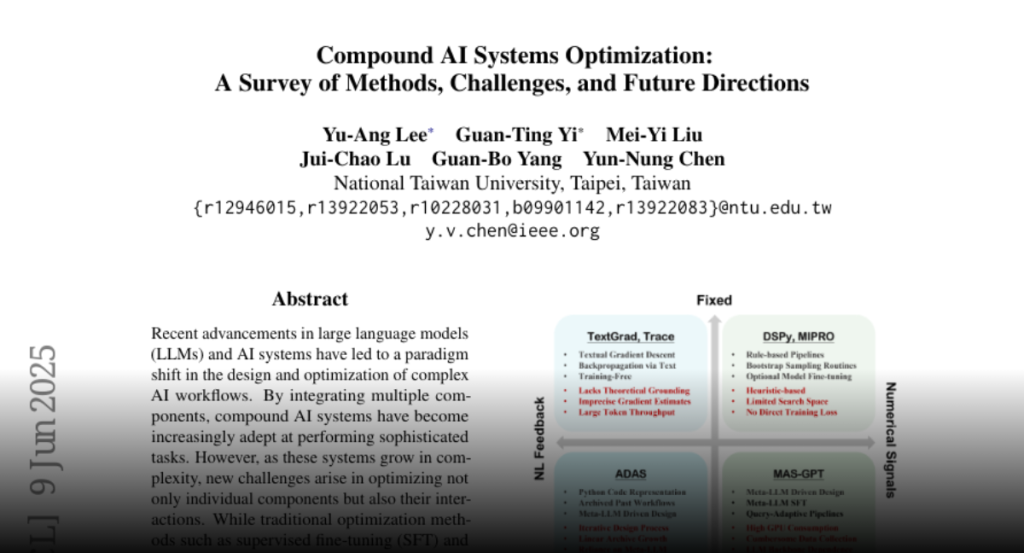Recent advancements in optimizing compound AI systems highlight challenges in integrating various components, with an emphasis on natural language feedback methods for non-differentiable systems.
Recent advancements in large language models (LLMs) and AI systems have led
to a paradigm shift in the design and optimization of complex AI workflows. By
integrating multiple components, compound AI systems have become increasingly
adept at performing sophisticated tasks. However, as these systems grow in
complexity, new challenges arise in optimizing not only individual components
but also their interactions. While traditional optimization methods such as
supervised fine-tuning (SFT) and reinforcement learning (RL) remain
foundational, the rise of natural language feedback introduces promising new
approaches, especially for optimizing non-differentiable systems. This paper
provides a systematic review of recent progress in optimizing compound AI
systems, encompassing both numerical and language-based techniques. We
formalize the notion of compound AI system optimization, classify existing
methods along several key dimensions, and highlight open research challenges
and future directions in this rapidly evolving field. A list of surveyed papers
is publicly available at https://github.com/MiuLab/AISysOpt-Survey.

